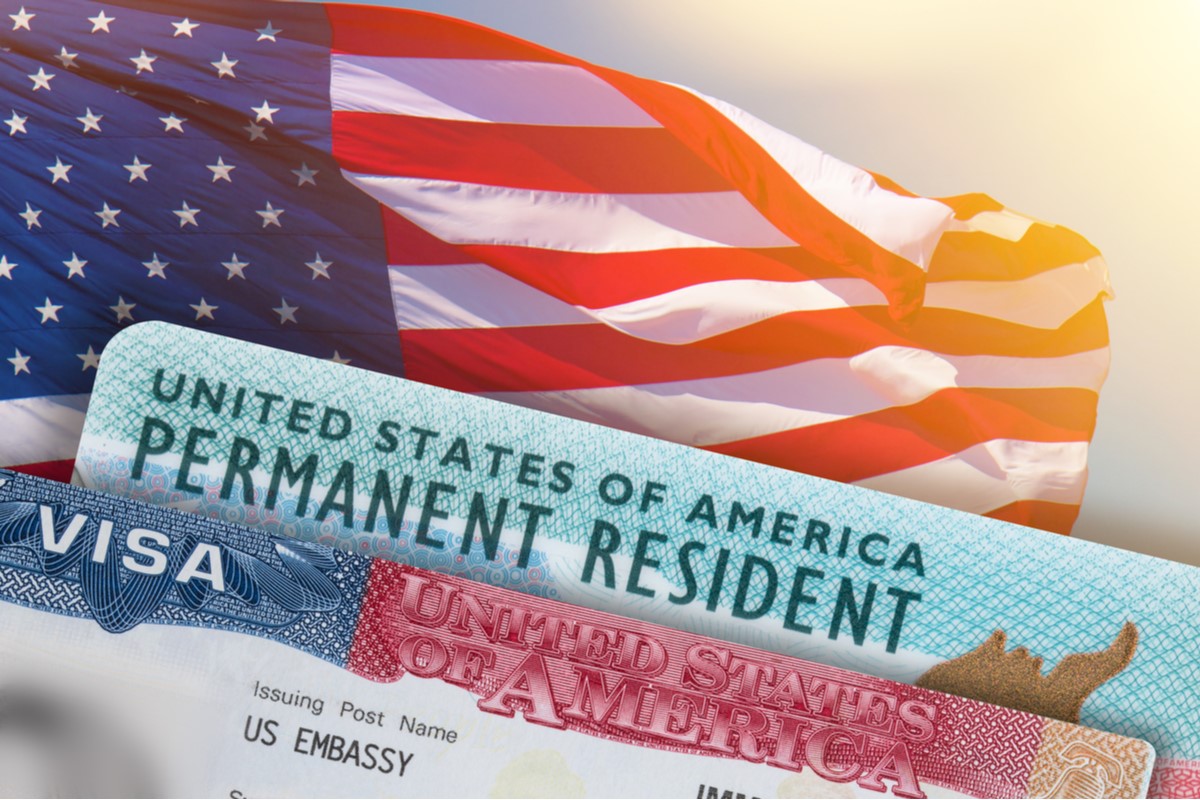What is an Immigrant Visa?
Immigrant visas enable foreign citizens to immigrate to the United States to live and work without any of the restrictions associated with nonimmigrant visas. Immigrants become U.S. permanent residents and are granted their green card if they can demonstrate that they have met the criteria of a specific immigrant visa category. Immigrant visas are granted on the basis of: family relationships, employment, asylum, or selection in the diversity visa lottery.
Family-based Immigrant Visas (FB)

Many immigrants become permanent residents of the United States by obtaining a green card through a sponsorship by either a U.S. citizen or lawful permanent resident family member. Immigrants who have immediate family members who are U.S. citizens are eligible to file for a family-based visa. Immediate family members include a spouse, unmarried children under the age of 21, or parents.
- IR-1: Spouse of a U.S. citizen
- IR-2: Unmarried children under 21 years of age of a U.S. citizen
- IR-3: Orphans adopted abroad by a U.S. citizen
- IR-4: Orphans who will be adopted in the U.S. by a U.S. citizen
- IR-5: Parent(s) of the U.S. citizen who is at least 21 years old
If the visa applicant already resides in the United States, then the application is submitted through United States Citizenship and Immigration Services (USCIS). First, the immediate U.S. citizen family member must file an I-130 petition. Once this is approved by the USCIS, the applicant files an I-485 petition to become a permanent resident. The applicant must file an application with the Department of State if they do not reside within the United States. After the I-130 is approved, the application will be sent to the Department of State’s National Visa Center. The applicant is then required to attend an interview at the U.S. consulate or embassy located in their home country.
Family Preference Immigrant Visas
Distant family members of U.S. citizens may also be eligible for permanent residency. Non-immediate family members who may qualify include unmarried children over the age of 21, married children of any age, and siblings of a U.S. citizen.
- Family First Preference (F-1): Unmarried children of U.S. citizens, and any of their minor children
- Family Second Preference (F-2): Spouses, minor children, and unmarried children over the age of 21
- Family Third Preference (F-3): Married children of U.S. citizens, and their spouses and minor children
- Family Fourth Preference (F-4): Siblings of U.S. citizens, and their spouses and minor children
Unlike immediate relative visas, there is an annual cap on the number of family preference visas. The F-1 cap is set at 23,400 visas, F-2 cap is set at 114,200 visas, F-3 cap is set at 23,400 visas, and the F-4 cap is set at 65,000 visas.
The application process for non-immediate family members is the same as the permanent residency application for immediate family members. First, the petitioning U.S. citizen must file an I-130 application. Then the applicant must file an I-485 to adjust their status if they already reside in the United States. If they live outside of the United States, then their application will be processed through the Department of State’s National Visa Center and they must undergo an interview at the U.S. embassy or consulate located in their home country.
Diversity Immigrant Visa Program (U.S. Visa Lottery)
Permanent residency visas are also granted to foreign applicants through the United States Diversity Immigrant Visa Program. The Diversity Immigrant Visa Program makes visas available for applicants from countries that have historically low rates of immigration to the United States.
Employment-based Immigrant Visas
Foreign nationals can also become U.S. permanent residents through the approval of an employment-based immigrant visa. Employment-based immigrant visas are reserved for foreign workers who immigrate to the United States for employment purposes. Employment-based immigrant visas are available for skilled workers, unskilled workers, investors, and other specialized workers. The USCIS makes approximately 140,000 employment-based immigrant visas available each year.







